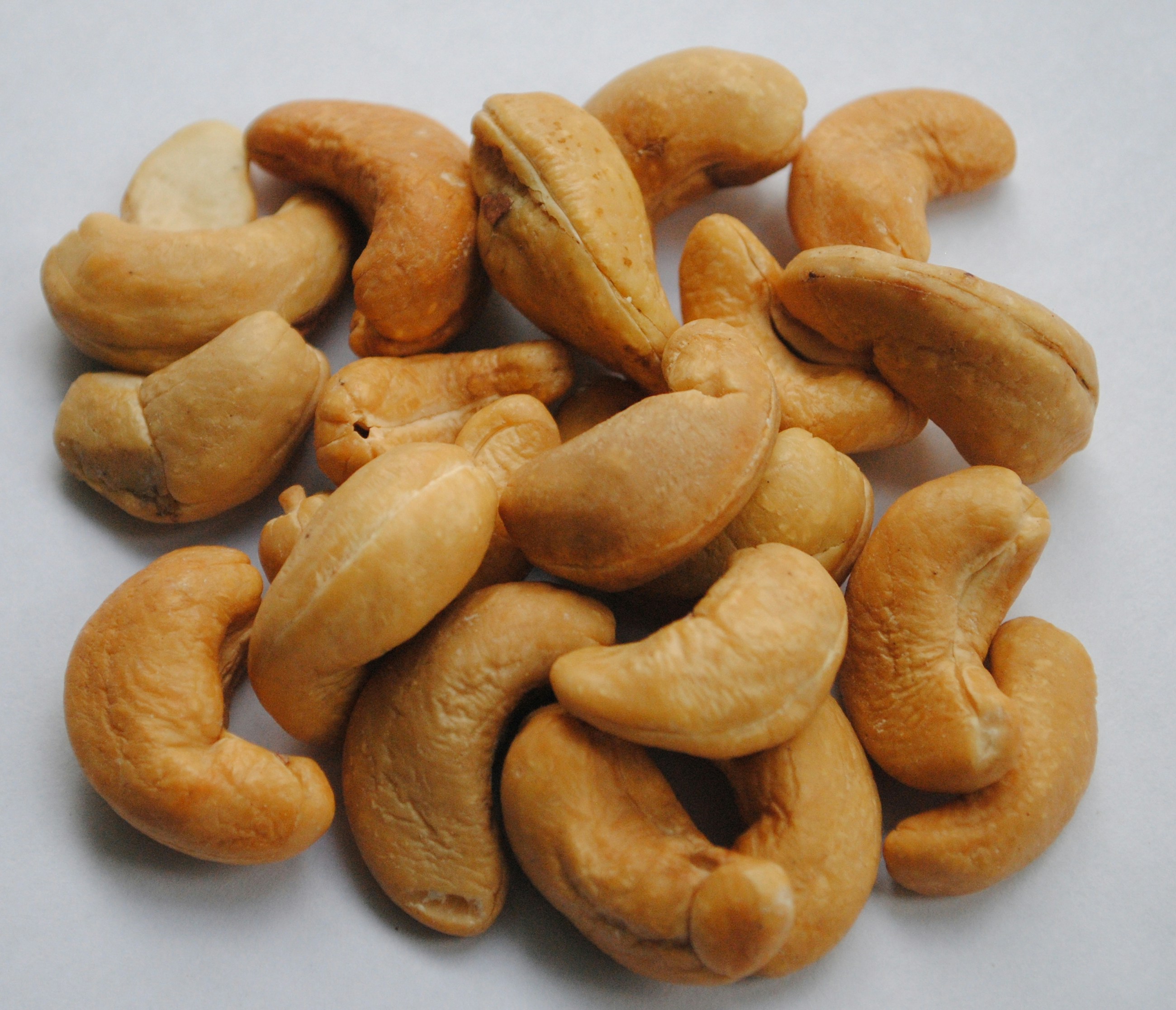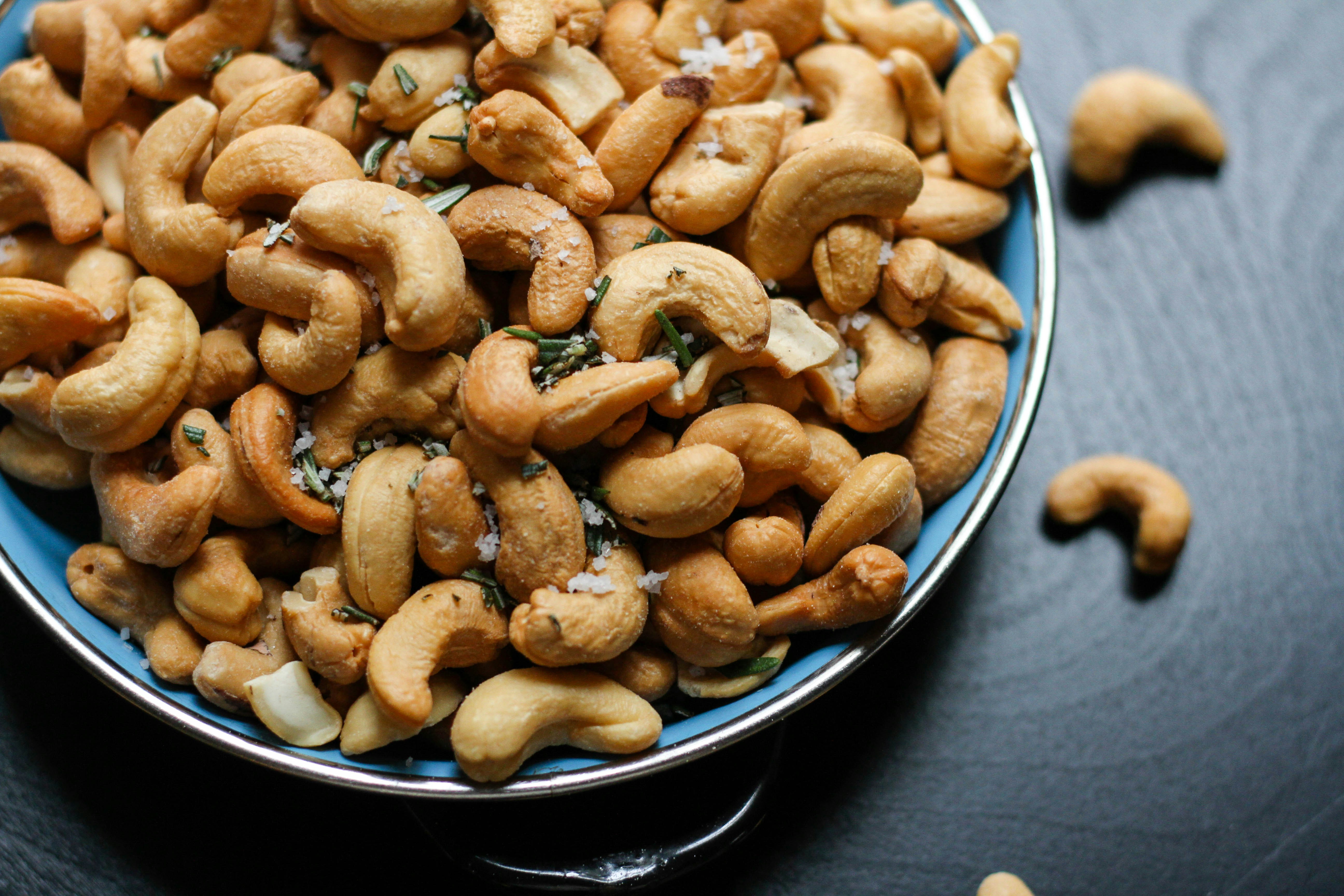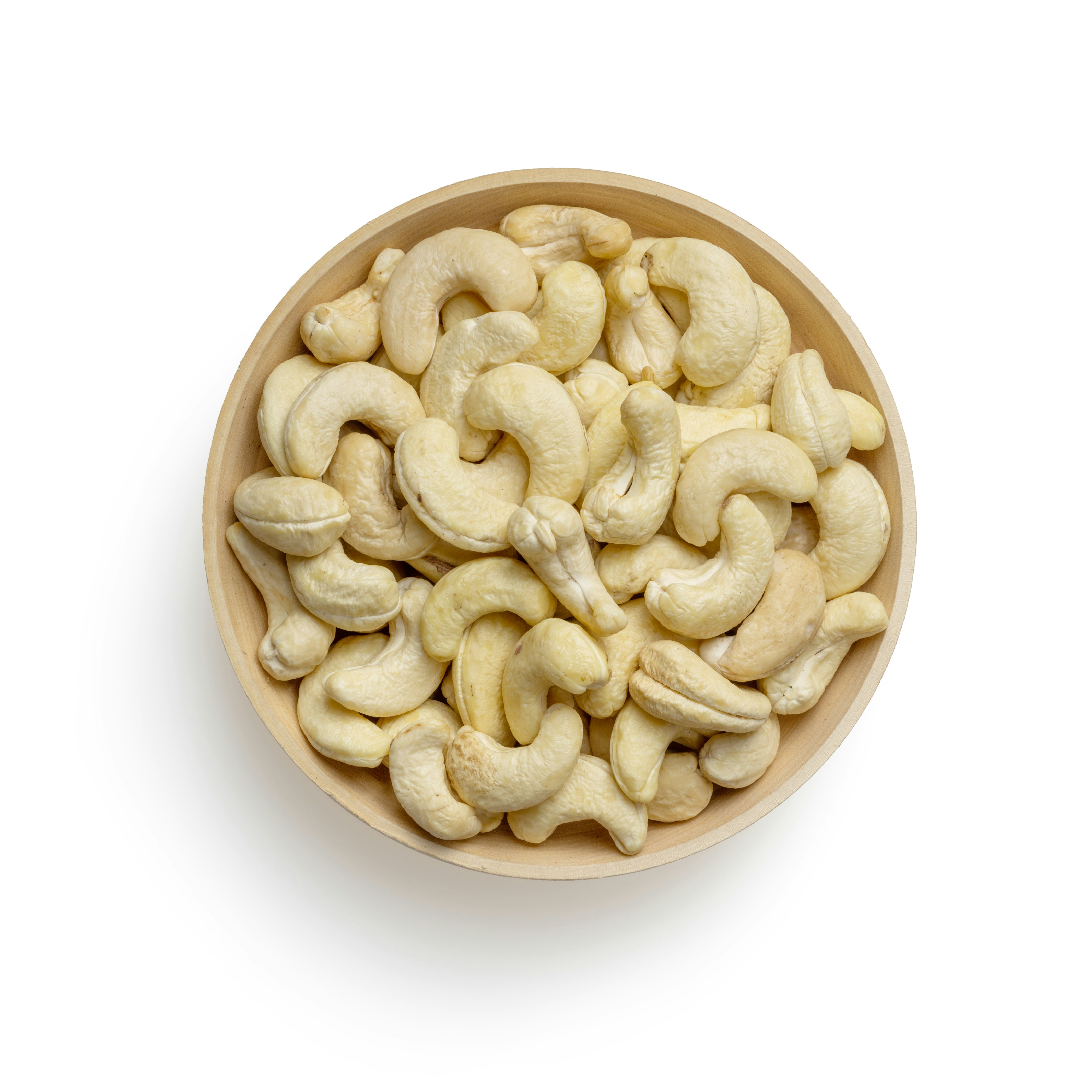About

Origin and Description
- Cashews are the seeds of the cashew apple, a tropical fruit native to northeastern Brazil. The cashew tree (Anacardium occidentale) produces both the cashew apple and the cashew nut. Cashew nuts are kidney-shaped and come attached to the bottom of the cashew apple.
Nutritional Value
- Cashews are rich in healthy fats, protein, and various vitamins and minerals. They contain high levels of monounsaturated fats, which are beneficial for heart health. Cashews are a good source of essential minerals such as copper, magnesium, and phosphorus.


Culinary Uses
- Cashews are commonly eaten as a snack on their own, roasted or raw. They are also used in cooking and baking, adding flavor and texture to various dishes. Cashews are often used in vegan and dairy-free recipes to create creamy textures, such as cashew cheese or cashew-based sauces.
Health Benefits
- Consumption of cashews in moderation may contribute to heart health due to their healthy fat content. They may help lower LDL (bad) cholesterol levels and reduce the risk of cardiovascular disease. Cashews are a good source of antioxidants, which can help protect cells from damage caused by free radicals.

Overall, cashews are a versatile and nutritious nut enjoyed worldwide for their taste and health benefits.
